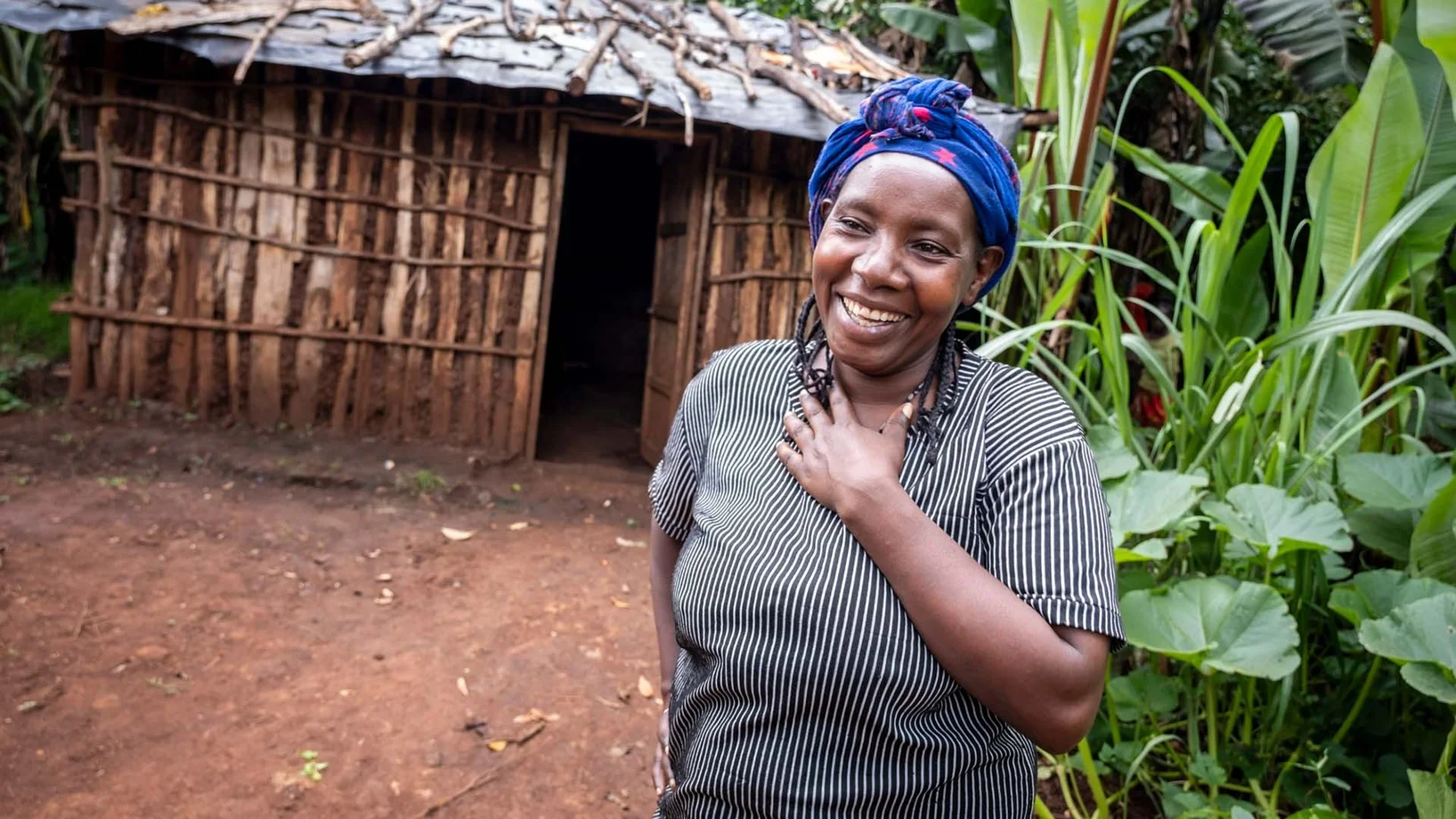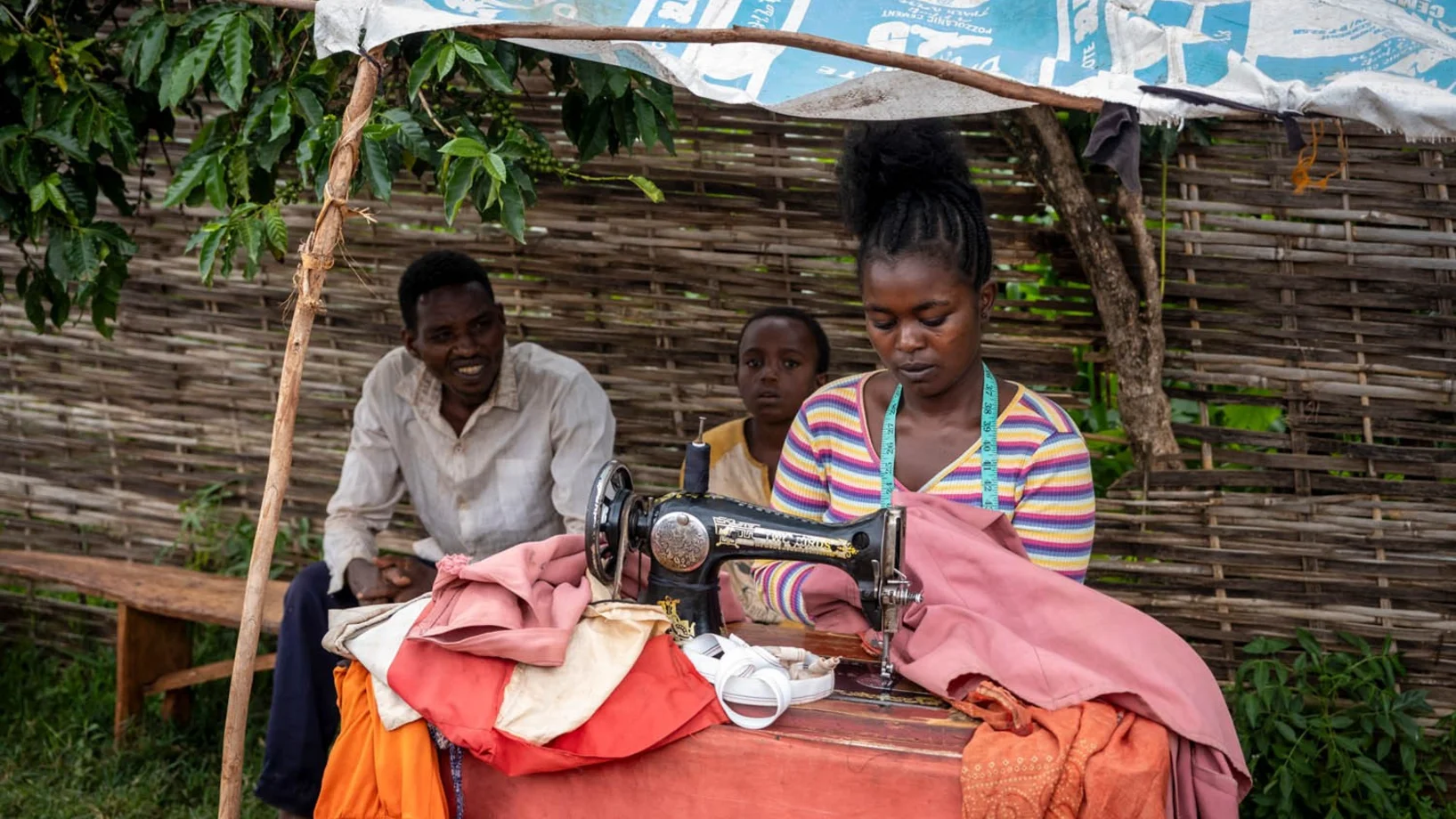Tailor-made development
Martha Wako sits at her old sewing machine on a gravel road in the small town of Gangua. The young woman used to be a day laborer - today she is self-employed. And she still has big plans.
When the electricity is on, people in the small town of Gangua sit around the few televisions after sunset. Sometimes images of models in faraway Europe flicker across the screen. Some of them are wearing jeans with rips and holes on their thighs and knees. They think they're beautiful in Europe? How strange!
No self-respecting person in Gangua would ever voluntarily step out onto the street with rips in their jacket or trousers. In Europe, torn clothing may stand for individuality and fashion. In rural Ethiopia, however, intact clothing is of existential importance: for people who have little or nothing, their outward appearance becomes an expression of dignity
Even children know this. A pupil in a clean, tidy uniform feels self-confident. If the school uniform is torn or dirty, this often not only reflects poverty, but can also lead to exclusion in the classroom. This is another reason why Martha Wako's sewing machine rattles quietly every day on the gravel access road to Gangua. It is a quiet, deliberate rattling, because the machine has no electric motor, it is powered by muscle power. Martha Wako sets the needle in motion with the help of a pedal. This allows her to work outside all day. An electric machine would not be an option. Martha does have a power connection in her rented room in a house on the main road. But the electricity often fails, for hours or even days on end.
A woman has just brought a school uniform. The synthetic fiber of the top is faded from the sun and the many washes, with a tear on the left armpit. In Europe, the jacket would be put in the old clothes bag or thrown away. Martha Wako examines the tear. "It'll be quick," she says, and quotes the price of the repair: the equivalent of 30 centimes.
23 years old, the young woman worked as a day laborer until two years ago, mainly processing and preparing coffee cherries for roasting, a strenuous job. Her wage was one franc a day. "That wasn't even enough to buy food," she remembers. "I had completed twelve years of school, but couldn't continue with vocational training due to a lack of money. I was frustrated and depressed that all I could do was earn what i needed to survive."
Like so many of her former classmates, she would probably have married soon for lack of other prospects and led a life of penury as a small farmer. But two years ago, Menschen für Menschen offered her another opportunity. Our youth development program gave her a small amount of start-up capital: we offer young people with business ideas the opportunity to help build a livelihood. Martha bought young sheep and fattened them. She used the proceeds to finance her training as a repair tailor and bought a second-hand sewing machine. Since then, she has been working six days a week. If she can't finish during the day, she continues sewing in her small room in the evening. Even on Sunday afternoons, after going to church, she sometimes sits down at the machine to deliver to her customers at the agreed time.
The Menschen für Menschen project in Abaya and Gelana focused on two key areas until the end of 2024: Food security and economic empowerment of the population - especially for women and young people. The project provided microloans and training to help people build their own livelihoods. The aim was not only to provide short-term aid, but also to create sustainable structures. In addition to agricultural measures - such as the introduction of improved seeds - young small entrepreneurs like Martha were specifically supported. At the end of 2024, our experts withdrew from the district to help in the neighboring district of Raphe.
Martha is now making it on her own. She earns three to four times as much as a day laborer per day. "I will achieve my goals," says Martha: "I want a better machine, I want a store in the city, I want to make my own clothes. And I want to employ other young women." What about a family?" I can still get married."
Suddenly, heavy raindrops hit the plastic tarpaulin stretched over her workplace to protect her from the sun. Sporadically, as a harbinger of an approaching cloudburst. Martha hurriedly dismantles the machine and drags it and the customers' clothes into the house. There she switches on the light bulb and sits down at the machine again. The quiet rattling is soon drowned out by the deafening noise of the drops drumming on the tin roof.
New project in Raphe
Work in the new Raphe project area officially began with an opening workshop at the beginning of March 2025. In the villages, "help for self-development" is underway. Our experts are currently identifying the most needy families and their potential in the rural district in southern Ethiopia and are beginning their training.

















